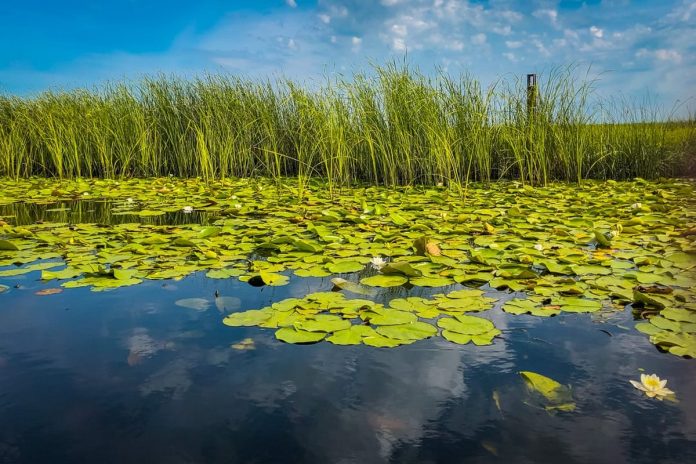Experts from the Danube Delta National Institute for Research and Development (INCDDD) are collaborating with foreign specialists within the Danube Wetlands and flood plains Restauration (DaWetRest) project to implement solutions aimed at restoring ecosystem balance in the Delta amid climate change and supporting local communities.
INCDDD Scientific Director Iulian Nichersu told AGERPRES that in Tulcea County, the DaWetRest project targets three areas, including Murighiol, where four lakes have dried up, impacting biodiversity.
„We are trying to retain rainwater for as long as possible and store it so it infiltrates more slowly. We want to build a series of installations to ensure that this reserve provides the necessary water during dry periods and, not least, we have a long-term plan to prevent treated wastewater from Murighiol’s residential area from being discharged into the Danube, but rather be reintroduced into the circuit and ensure the necessary water supply for these lakes,” the INCDDD representative stated.
Another area targeted by the EU-funded project is the village of Caraorman.
„In Caraorman, we plan to build a pilot fish-farming station to develop a business model, not by promoting large-scale fish-farming, but through intensive fish-farming in small basins that can meet tourism demand. At the same time, these small basins, using recirculation systems, will also help purify the water released back into nature. It will be a win-win system, and work has already started. The fish farm abandoned in the 1990s, once a symbol of the Romanian fish-farming, fell into ruin, and now we’re trying to revive it. (…) We are working with a private company that will be one of the beneficiaries by setting up a technology park together with the INCDDD. Basically, our goal is to turn this site into a hub for Romanian fish farming,” Iulian Nichersu stated.
The DaWetRest project also targets an area near the Black Sea, where the effects of climate change are more severe.
„In the area of the dam connecting Sulina to Sfantu Gheorghe, there is no longer any transfer of water, matter or energy. Everything is practically cut off because of climate change. The area becomes isolated after May. Although there are lakes deeper than 1.5 meters, very good as basins where fish can grow in natural conditions, the water level drops in this period and life virtually disappears. We are trying to restore connectivity to the sea and find solutions to refresh the water,” the INCDDD’s scientific director.
The DaWetRest project started in 2023, will conclude in 2027 and involves specialists from 12 countries. AGERPRES




